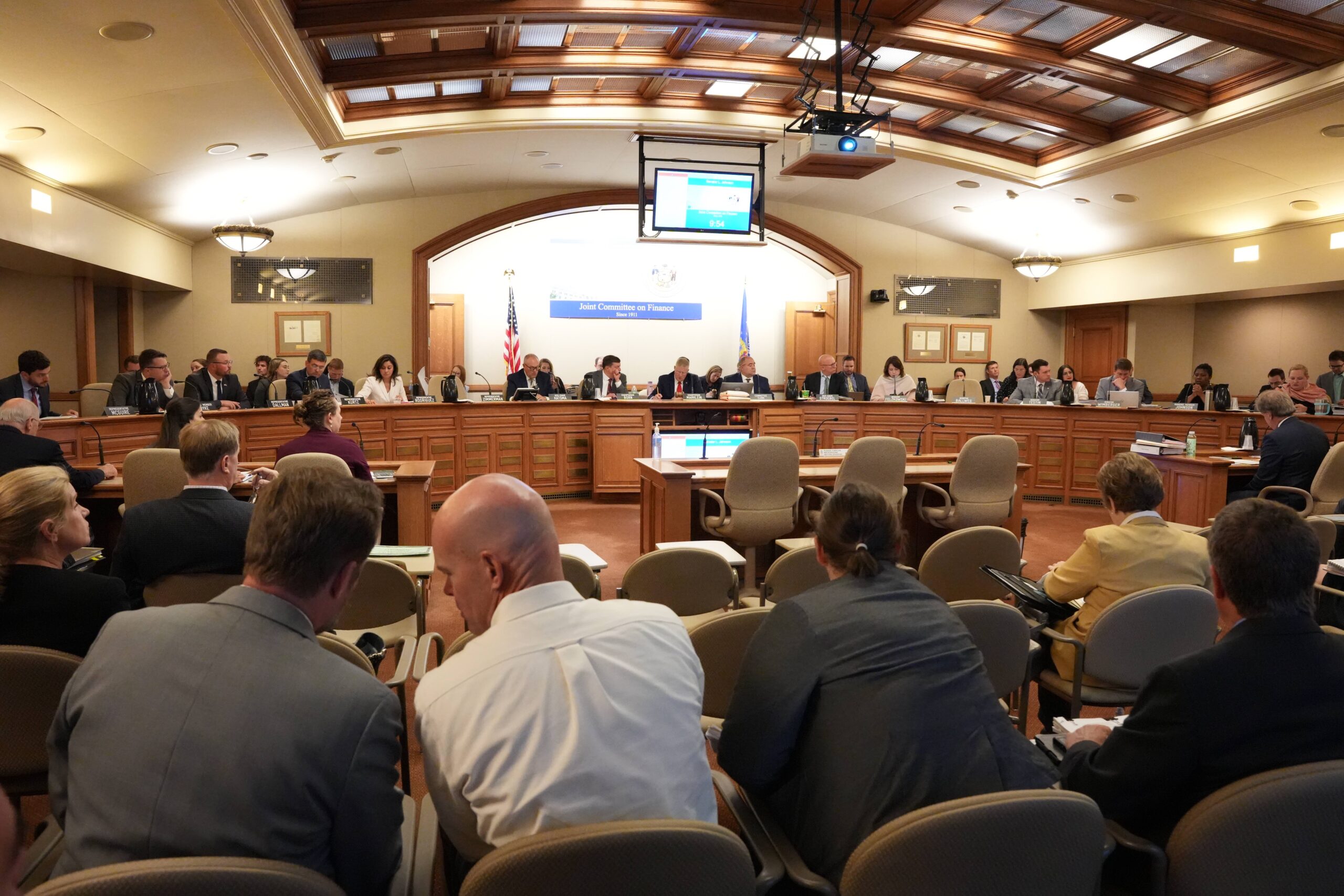
June 16, 2023
By Lane Kimble
Good things tend to come to those who wait and – in the transportation world – that wait appears to be well worth it.
Initially scheduled to debate the Transportation budget five days earlier, the Legislature’s Joint Finance Committee voted 11-4 late Tuesday night to approve a budget that pumps nearly $1 billion in new revenue into the transportation system.
“We’ve had a lot of good transportation motions since I’ve been on this committee but this might be the best one yet,” JFC Co-Chair Rep. Mark Born (R-Beaver Dam) said just before the vote.
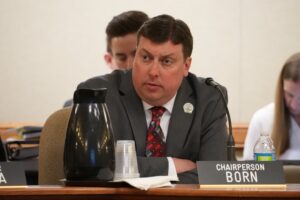
In many ways, the JFC’s budget goes above and beyond what Gov. Tony Evers initially proposed back in February, while also paying cash for some significant projects and limiting bonding. Much of that is thanks to the Committee utilizing a portion of the state’s nearly $7 billion surplus.
“I am thrilled to vote for this because this is a true investment in the state of Wisconsin. Something that everyone should be proud of, to make historic investments,” Rep. Tony Kurtz (R-Wonewoc) said.
Among the many notable additions and program growth the budget would provide, a new ongoing funding mechanism to supplement the gas tax stands out.
The budget dedicates electric vehicle (EV) sales taxes into the Transportation Fund, which should generate an estimated $94 million over the next two years.
The JFC plan would also raise the annual EV surcharge from $100 to $175, generating another $3.2 million.
“A strong system of local roads and backbone state highways is a foundational building block of a strong economy and I think the Finance Committee recognized that,” WTBA Executive Director Steve Baas said.
“The action they took and the funding they provided helps position Wisconsin more competitively within the economy of the twenty-first century.”
A MAJOR COMMITMENT TO MAJORS
Committee members using the word “historic” to describe this Transportation budget isn’t hyperbole.
Their vote – while still needing Assembly, Senate, and the Governor’s final approval – provides the funding or, in some cases, the momentum to begin work on several major projects that have been discussed for years in Wisconsin.
Funding of the state’s Major Highway program at $591 million would match the Governor’s proposal. No Transportation Revenue Bonds would be issued for the program; they would be replaced by $146.7 million in state funding.
The budget dedicates more than $47 million for the Blatnik Bridge between Superior and Duluth and authorizes $352.8 million in transportation-supported general obligation bonds for Wisconsin’s share of the estimated $1.8 billion project, the cost of which is shared between states.
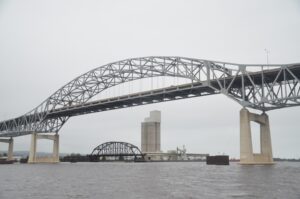
They have requested nearly $900 million in federal discretionary bridge funding and having the funds in reserve could improve the states’ chances of a successful application.
Similar to Majors, the Governor’s proposed bonding of $141 million for the I-94 East-West Corridor would be replaced with state funds.
Total funding of $244.8 million would match the Governor’s proposed funding ($237.8 million) for the East-West project as well as provide $7 million for sound barriers on I-894 in Milwaukee County between Loomis Road and 76th Street in Greenfield.
JFC’S BUDGET IMPACT ON KEY INFRASTRUCTURE PROGRAMS
General Transportation Aids (GTA): Local governments would receive 2% increases in each of the next two years.
Local Road Improvement Program (LRIP): The existing formula and discretionary programs would receive 4% increases. In addition, for the third consecutive budget LRIP-Supplement grants would be available – this time totaling $100 million.
LRIP-Ag. Roads: A new one-time program would provide $150 million for grants to improve agricultural roads.
Local Bridges/Culverts: $12.5 million would be provided to conduct a needs assessment of local bridges and culverts throughout the state that are 20 feet or less in length, which makes them ineligible for state and federal funding.
UP NEXT? FLOOR DEBATES AND GOVERNOR’S EDITS
While there is a lot in the JFC’s plan to be excited for, the budget is not set in stone. The state Assembly and Senate must both hold floor debates and vote on the budget.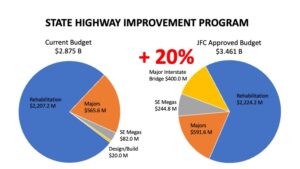
Once approved by both chambers, the governor gets final say on the matter. Gov. Evers has a fair amount of latitude to make edits and changes to the budget with his veto pen, which allows the governor to strike and change individual lines in the bill.
According to the Department of Administration, the budget should be signed and effective by July 1. If there is a delay, state agencies operate at their existing levels until the new budget is in effect.
WTBA will continue to track and monitor the budget while advocating on behalf of its members. Make sure to read future Weekly Updates this summer as the final steps of the budget process play out.
